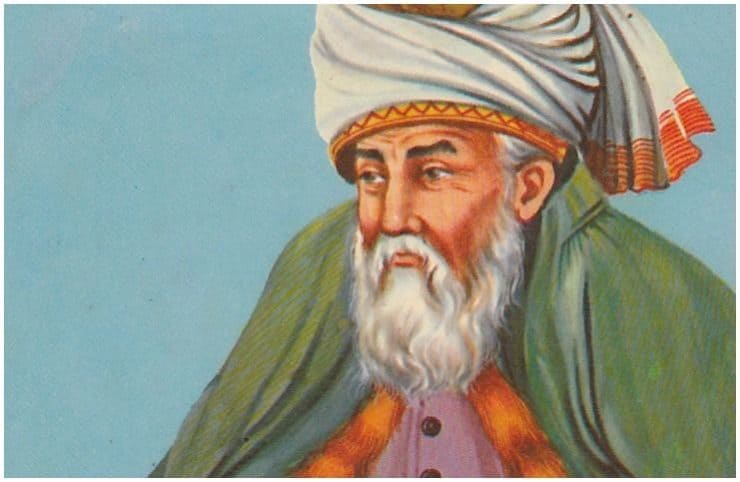 In the Tasawwuf terminology Muraqaba means "to watch over one’s heart or to keep an eye over one’s heart" i.e. to take care of one’s heart & inner self from being corrupted. The Quran gives much importance to this practice and also Prophet Muhammad ﷺ emphasized its importance throughout the 23 years of his prophetic mission. Our hearts are spiritual centers through which we can keep our individual connection with Allah ﷻ but the Duniya (world and its pleasures) and Nafs (evil commanding soul) attempt to corrupt it. Nafs continues to be tempted by the Duniya and every time we yield towards its temptations we impact our hearts. Allah ﷻ says in the Quran: (Al Quran 26:88–89) "the Day on which neither wealth will be of any use; nor children, [and when] only he [will be happy] who comes before God with a heart free of evil!" Whoever keeps their heart pure from all dross in this world will come on judgment day with the same purity. The human heart as long as its physically alive is under continuous exposure from all sorts of evil and negative influences especially in times like ours where worldly pleasures are presented to us in a beautiful and deceiving manner. What impacts a child’s upbringing as well as the thought process of adults are the environmental factors, they impact our five physical sense perceptions. The exposure received by our senses results in leaving traces internally on our souls and hearts. For instance whatever we hear and see, as long as its not filtered through God consciousness will impact our inner selves and effect our behavior in the near future or in the long run. Exposure to negativity through what we watch, hear or read has the potential to misguide us in to disbelief (Kufr) and the exact purpose of Muraqaba is to defend one’s internal self from such effects. Prophet Muhammad ﷺ taught us how to maintain Muraqaba by teaching us something called Ihsaan: “Ihsan is to worship Allah as if you see Him, and if you do not achieve this state of devotion, then (take it for granted that) Allah sees you." (Sahih Bukhari) Maintaining such consciousness that Allah ﷻ watches us keeps us in check and assists us in protecting our inner selves from negative influences. In fact even if the negativity was to impact us and we commit sins due to our weak nature that Allah ﷻ created us with (Al Quran 4:28) we should immediately resort to Him for forgiveness and protection which assists us in maintaining such concentration in long run. The Quran guides us to maintain internal purity: (Al Quran 91:7–10) "...To a happy state shall indeed attain he who causes this [self] to grow in purity, and truly lost is he who buries it [in darkness]." Abu Said Abul Khayr (440 Hijra, C.E. 1048] one of the greatest saint referred to the importance of Muraqaba when asked: "So and so walks on water (without sinking. What do you think)?" He replied, "It is quite easy. Seagulls walk on water, too." They said, "So and so flies in air." He said, "Birds and flies can fly, too." When they said, "So and so goes from one city to another in a flash," his answer was: "The devil also can travel from the far east to the far west in the same breath. Such things are of no value. A manly person will lead a life like anybody else. He will do shopping. He will get married. And he will not forget Allah even for a moment." Allah ﷻ says: (Al Quran 13:28) "and whose hearts find peace in the remembrance of God- truly it is in the remembrance of God that hearts find peace." The continuous remembrance of Allah ﷻ in our hearts throughout the day in addition to the obligatory act of salaah (5 times prayers) will assist us to experience His presence and our spiritual connection that keeps us on the path of guidance. This is all included in the concept of Muraqaba, it is extremely important and necessary for a believer as long as he or she lives.
0 Comments
 Tasawwuf does not promote celibacy. Marriage is highly encouraged by all paths of Tasawwuf as the teachings are based on Quran and the Sunnah of the Prophet ﷺ. Sexuality is not considered inherently evil as it may be considered in some other religious denominations. Practicing sexuality is permissible as long as its being done in accordance to Islamic teachings. Almost majority of great Imams of Sufis were all married and had children. One of the Prophet's companion named Uthman bin Mazoon decided to worship every night, all night without sleeping and fasting every day without break which caused his wife to complain to the Prophet ﷺ. The Prophet ﷺ told Uthman “Uthman, am I not the one you should follow?” Uthman wondered what the Prophet ﷺ was alluding to, and when the Prophet mentioned his night worship and fasting, Uthman confirmed that he did. The Prophet said: “Do not do so. Your eyes have a claim on you; your body has a claim on you; your family has a claim on you. You may worship a little and go to sleep; and you may fast some days, but not every day.” Uthman then acted on the Prophet’s advice. In reality there has been very few Sufi Tariqahs (paths) within the Sufi tradition of Islam who accepted the practice of celibacy and this is due to contradiction of what Islam teaches and what is called Monasticism. Allah ﷻ says in the Quran: (Al Quran 57:27) "...But monasticism was something they invented- We did not ordain it for them- only to seek God’s pleasure, and even so, they did not observe it properly." This was revealed in reference to early history of Christianity where monks lived a reclusive life complete devoid of any pleasures at all, including celibacy practice as a way to imitate Jesus son of Mary (alaihi salaam). This tradition however did not last long among them as the instincts placed by Allah ﷻ within human nature conflicts with this complete reclusive lifestyle that a human tries to adopt. A sufi who practiced celibacy had a dream related by Imam Ghazzali (r.a), himself a medieval Sufi Imam and theologian, in his well known book called Ihya: The sufi saw himself in dream that it was a day of judgment and all men around him were being fed and given fresh water by these children, however he noticed that none of the children catered him to which he inquired to one of the angels as to why he wasn’t being looked after by these children while all other men were being take care of. The angel answered that all these men were their fathers and since he didn’t have any children he wasn’t being looked after. The moment he woke up he immediately decided to get married. Prophet Muhammad ﷺ said: "all deeds of the dead cease to benefit them from this world except for 3 and they are continuing charity, knowledge that others benefit from, and a righteous child who prays for him." (hadith) Concept of Zuhd (Renunciation) However there is a concept within Sufic tradition referred to as Zuhd (Renunciation). This means renunciation of the pleasures of the world by not actively seeking them and be satisfied with what Allah ﷻ gives one and be patient with what Allah ﷻ deprives one. This does not mean complete renunciation of all and everything. The Persian Sufi Imam Al-Qushayri mentions in his Risala what generally sufis have described about this practice “Zuhd (renunciation) of that which is prohibited is an obligation, whereas renouncing that which is lawful is a virtue. They also say that having little property – provided that the servant of God endures his condition patiently, satisfied with whatever God has apportioned for him and content with what God bestows upon him – is better than living comfortably and lavishly in this world, for God Most High urged His creatures to abstain from this world, when He said: “The enjoyment of this world is little; the world to come is better for him who fears God.” (Al-Quran 4:77). There are many other verses [in the Quran] that disparage this world and enjoin men to renounce it. Waki bin. al-Jarrah, who wrote a Kitab Al Zuhd (Book of Renunciation) said: “Renunciation of this world means cutting short one’s hopes rather than eating coarse food or wearing a woolen cloak.” Sufis who practiced Zuhd extensively to the point that they lived their lives without marrying were Ibrahim Bin Adham, Rabia Basri, a famous female Sufi saint from Basra, Iraq and even the famous Sufi of Baghdad Abdul Qadir Gilani (r.a) did not marry till in his 50s. However one thing to mention here is that such Sufis never imposed restrictions on their followers, they imposed such restrictions only on themselves because they realized their own spiritual status. For instance the great Sufi Sahl Tustari used to fast for 7 days, going without food and water. His followers tried to imitate him but he informed them not to do so because Allah ﷻ was providing him Rizq (provision) from other sources (spiritually), therefore they had not reached that level yet. Therefore the celibacy is considered a blessing if they are unable able to marry due to financial conditions or other circumstances brought about by Allah ﷻ, as the sufis say ‘Allah deprives only His chosen ones from this Duniya (world and its pleasures).’ but they don’t prefer to make this a condition for this path because if they did then they would be contradicting Shariah (Islamic Law) and Shariah is absolutely necessary for the majority who travel this path.  What Maulana Rumi (Rahimullah) meant is that the knowledge of Allah ﷻ, root of divine knowledge lies in our Soul (Nafs) and the purpose of each individual’s existence is to know their soul (nafs) so that divine blessings descends upon it and they gain that knowledge which assists them to come closer to Allah ﷻ. Unfortunately most of us keep ourselves or our souls (nafs) busy with material world with hardly any or very less concentration on matters of hereafter which leads us to keep our souls blocked and covered from receiving the divine and that is where we are not only wasting our potential but also defeating the purpose for which we were created. Like the great Sufi Imam Ghazali said "air does not enter a pot full of water, so knowledge of Allah ﷻ does not enter a soul or mind if it remains filled up with things other than Him." This saying of Maulana Rumi can be best understood in the light of the following Quran verses: (Al Quran 91:7–10) by the soul (nafs) and how He formed it and inspired it [to know] its own rebellion and piety! The one who purifies his soul succeeds and the one who corrupts it fails. Please also read something I wrote on Soul: The Mystery of Human Soul |
AuthorZaid Shah ArchivesCategories |
 RSS Feed
RSS Feed